MercoPress. South Atlantic News Agency
Tag: Brazil economy
-
Sunday, May 14th 2017 - 08:53 UTC
Brazil retail sales plunge in March; government insists economy will be positive in first quarter
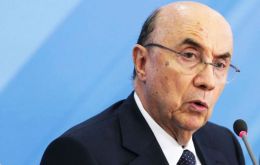
Retail sales in Brazil unexpectedly fell in March at the steepest monthly rate in 14 years, strengthening bets on a bolder interest rate cut at the end of this month. Sales volumes excluding cars and building materials fell 1.9% in March from February, government statistics agency IBGE said. Sales fell 4.0% from the year-earlier period.
-
Monday, May 8th 2017 - 21:57 UTC
Brazilian economy expected to begin takeoff in the first quarter

Brazil's economy will post growth of between 0.7% and 0.8% in the first quarter, turning the corner on a two-year recession, Finance Minister Henrique Meirelles said this week. In an interview with GloboNews cable channel, Meirelles said Brazilian companies will have to start to restock inventories and draw up investment plans.
-
Friday, April 28th 2017 - 17:23 UTC
Brazil hit by record 13.7% unemployment in March, 14 million out of a job

Brazil's jobless rate rose to a record for the fifth straight month in March with more than 14 million workers unemployed, government data showed on Friday, illustrating the hardships caused by the country's deepest recession ever.
-
Wednesday, April 19th 2017 - 14:38 UTC
Brazilian economy gives signs of recovery, but many challenges remain

Economic activity in Brazil grew in February at the fastest pace since January 2010, a central bank indicator showed this week, in the strongest sign yet that Latin America's largest economy is emerging from a two-year recession. Bumper harvests are expected to have lifted agricultural production in the first quarter of the year, while industrial output improved on a pickup in car exports.
-
Thursday, March 9th 2017 - 11:28 UTC
Brazilian economy two-year contraction is slowing
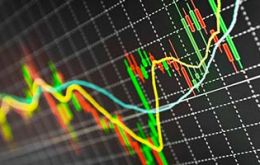
Brazilian services activity contracted at the slowest pace in two years in February, contributing to signs that Latin America's economy may soon turn the corner on a deep recession. The Purchasing Managers Index (PMI) for Brazilian services, compiled by research firm Markit, rose to 46.4 in February from 45.1 in January, hitting its highest mark since March 2015.
-
Wednesday, March 8th 2017 - 10:12 UTC
Brazil's worst-ever recession continued during 2016, GDP drops 3.6%
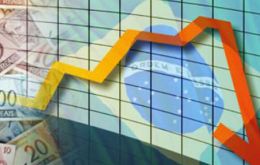
Brazil’s economic woes continue as the country’s worst-ever recession unexpectedly deepened at the end of last year. Gross domestic product contracted by 0.9% between October and December. For all of 2016 it dropped by 3.6%; almost as bad as in 2015 with a 3.8% slump. It was the eighth straight quarter of contraction.
-
Tuesday, January 31st 2017 - 21:03 UTC
Brazilian government is “meeting its budget deficit”, says minister Meirelles
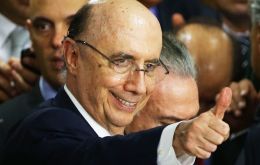
Brazil's central government registered a primary budget deficit of 154.255 billion reais (US$49.40 billion) in 2016, meeting its target but recording a third consecutive annual deficit that reflects the dire state of the country's finances. In December, the country posted a primary deficit of 60.124 billion reais (US$19.25 billion).
-
Tuesday, January 17th 2017 - 10:06 UTC
IMF downgrades Latin America prospects because of lesser growth in Brazil and Mexico
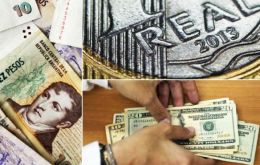
The International Monetary Fund has become more pessimistic about Latin America in the January economic outlook update. IMF is now forecasting regional GDP growth of just 1.2% in 2017, down from the 1.6% projection it made in October. It also lowered its 2018 estimate for Latin America by 0.1% to a revised projection of 2.1% expansion.
-
Wednesday, November 30th 2016 - 10:14 UTC
Brazil economic outlook lowered according to Central bank survey

Economists again lowered their outlook for Brazil's economic performance in 2016 and 2017, as the effects of a deep recession persist in Latin America's largest economy.
-
Tuesday, November 22nd 2016 - 13:38 UTC
Fiscal vulnerability of Brazilian economy exposed at a business conference

Brazilian President Michel Temer warned on Monday that the national debt could swell to the size of the country's gross domestic product within eight years should public spending not be brought under control and fiscal reforms not enacted.
